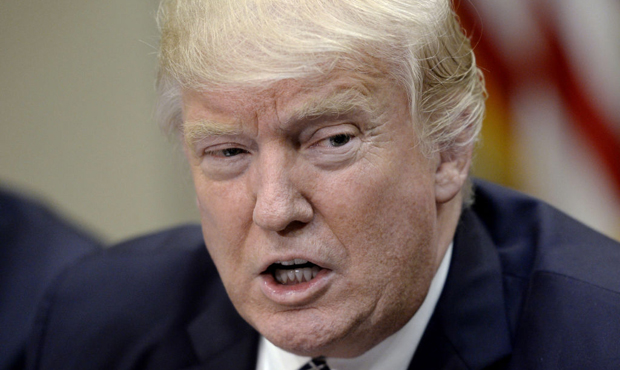Trump tariffs could impact $1 billion in Washington agriculture
May 17, 2019, 5:48 AM

(Olivier Douliery-Pool/Getty Images)
(Olivier Douliery-Pool/Getty Images)
An ongoing trade war against China triggered by President Trump could impact upwards of $1 billion worth of agricultural business in Washington state.
RELATED: US-China trade war affecting ORCA card prices
Dr. Lisa Brown, the Director of the Washington State Department of Commerce, spoke to KIRO Radio’s Candy, Mike and Todd Show about the specific impact of tariffs on our state.
“This is a serious problem, and the longer it goes on without resolution, the greater the risk of more significant economic downturns that affects people in terms of jobs, and the price that they pay for products,” she said.
According to Dr. Brown, the list of Washington products being slapped with retaliatory tariffs is long. That includes Central Washington’s wine industry, newspaper printing across the state, and agriculture like cherries and wheat.
The Department of Commerce just finishing reviewing the economic impact of all the products slapped with retaliatory tariffs. $4 billion worth of those goods were exported in 2017, and $1 billion worth were agricultural products alone.
That means those goods could go unsold. And when it comes to something like cherries, just because China won’t buy them, it doesn’t mean we’ll have a glut of cheap cherries this summer in the grocery store.
That’s because growers may not have the money to harvest their fruit, while other businesses could just shut down.
“What it often means is that producers don’t have the signal to produce the product, so you often end up with businesses that are already having challenging conditions, and going out of business, shifting their production,” she said.
So, what happens to consumers in all this?
“In the short run, it might be hard for a consumer to detect to the effect, but over time the price of consumer goods like clothing will definitely be rising.”
That all being so, not everyone believes that the tariffs are ultimately a negative for the United States.
“If we look at the stakes the two countries [the U.S. and China] are playing in, the United States is in a significantly better position overall,” Seattle Pacific University professor Bradley Murg told the Candy, Mike and Todd Show.
Murg’s point centered around the fact that eventually, there will be “nothing left for China to tariff,” while the U.S. “will be able to make a significant impact on China’s economy.”
For Dr. Brown, though, the cost of this trade war goes behind tariffs, pointing out that even if they go away, we can’t simply just turn our exports back on like a switch. Essentially, that means some markets can go away for good.
“The biggest risk to our agricultural community is losing the trade relationships that took a long time to build up,” she said. “When the tariff goes away, the customer doesn’t necessarily come back.”
The Trump administration estimates that nationally, retaliatory tariffs are being levied on $20 billion worth of agricultural products alone.
Andrew Lanier contributed to this report













